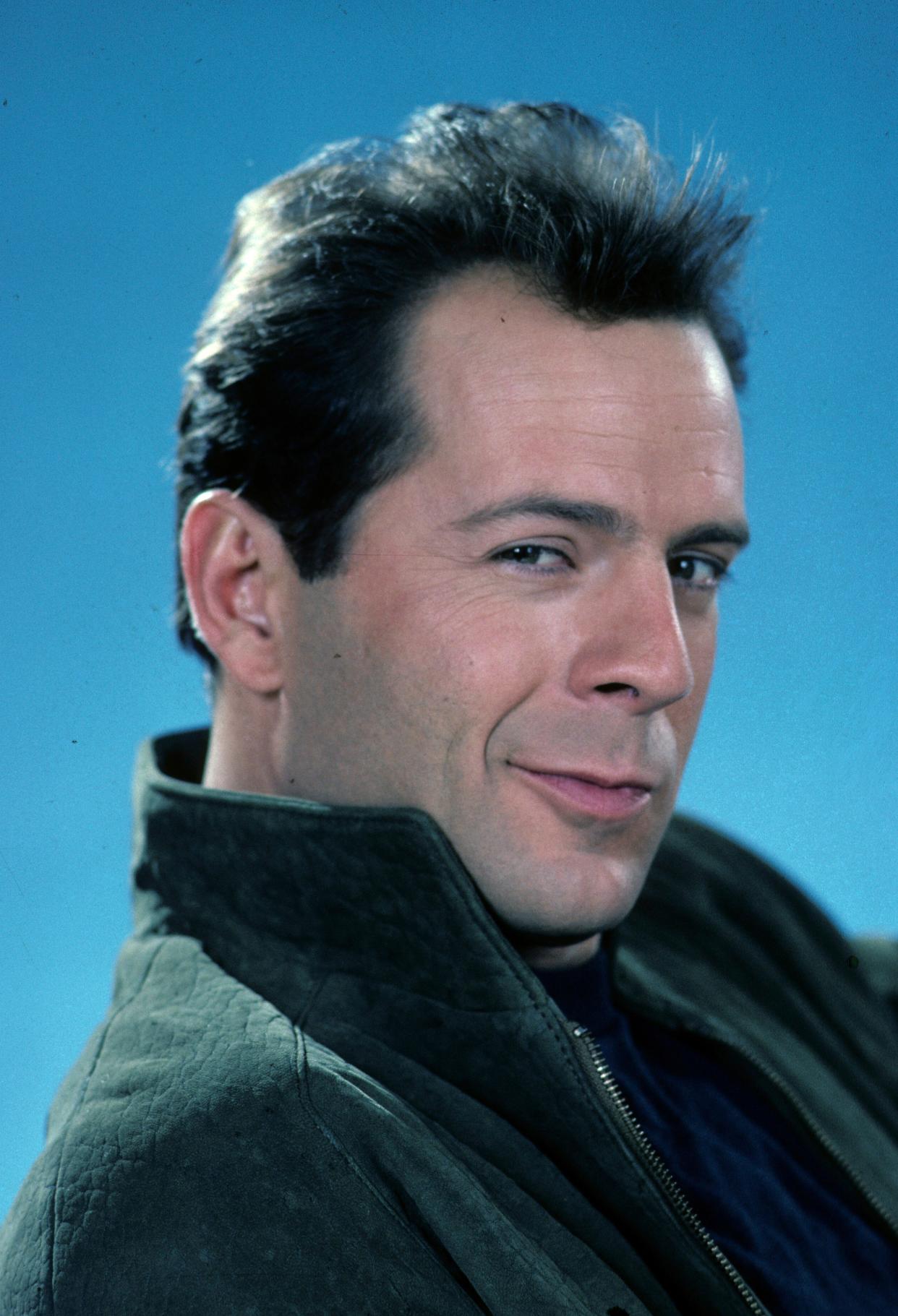I Was Not Prepared for the Magnetic Charisma of the Young Bruce Willis

- Oops!Something went wrong.Please try again later.
- Oops!Something went wrong.Please try again later.
- Oops!Something went wrong.Please try again later.
ABC Photo Archives/Getty Images
As a general aficionado of television and pop culture I had often heard about the 1980s ABC series Moonlighting, but it had also long seemed out of reach. I’d never thought to shell out for it on physical media, and it was not accessible on streaming until this October, when all five seasons debuted on Hulu.
I had been aware of the ostensible "Moonlighting curse"—the idea that a show with a will-they-won't-they couple will flounder when those two finally get together—but when I decided to dive in, I really wasn't prepared for what I was about to see.
My first reaction? Holy shit, Bruce Willis. Bruce Willis is out-of-this-world good in this show. Maybe that’s obvious to most people, but as someone who wasn't alive when it was on the air—sorry, I'm baby—I was flabbergasted by the jolt of star presence emanating from my laptop screen as I streamed.
For those unaware of Moonlighting's basic premise: Willis plays David Addison, a Los Angeles private eye whose life is thrown into turmoil when his agency's owner, former model Maddie Hayes (Cybill Shepherd) decides to shut down the business. Of course, they end up working together.
The beautiful trick of Moonlighting, created by Glenn Gordon Caron, at least what I've watched so far, is that neither David or Maddie are particularly talented detectives. They mostly stumble into cases and solutions. Willis’ David in particular operates on bravado more than anything. He's a motormouth with a somewhat deluded self-confidence that he gets away with by being absurdly charming. David annoys Maddie to no end, but often as he's needling her, you can see a little smile from Shepherd. She can't help but be taken with him. It's a relatable feeling.
As I tucked into the first season, I had to keep reminding myself that when audiences first tuned in they had really no concept of Bruce Willis as an actor at all. He was a virtual unknown when he was cast, with few credited roles apart from one Miami Vice guest-star turn. The New York Times review of the series explained that, "Mr. Willis…seems to have come out of nowhere," highlighting that he had mostly done regional theater up until this point. "In repose, the actor is not your average leading-man type," the piece continued. "He could easily be mistaken for the quiet guy down the street."
It's a wild statement to make about someone who would become one of the biggest film stars of all time—but also, hadn’t they seen him on Moonlighting? From the very first episode—which is not even one of the most highly regarded—every time he’s on screen it's like getting an injection of pure, uncut movie star.
As he would later further prove, he could basically do it all. He could hang off of buildings, get into gun fights, sing, and play the fool. In a great scene in the second episode, "Gunfight at the So-So Corral," he convinces the preppy, pristine-looking Maddie she has to look rougher to enter a tough-guy bar. When he addresses the bartender, cigarette hanging out of his mouth, he gets his ass handed to him.
Moonlighting’s tone is a deliberate throwback to the 1940s, an homage that became text in the famous second-season episode “The Dream Sequence Always Rings Twice,” in black and white with an introduction by Orson Welles. The title is a noir riff, but the premise—Maddie and David have competing dreams in which they are, respectively, a torch singer and a trumpet player —the general tone is more like screwball comedy. Willis gives Cary Grant without the British accent, as at home with pratfalls as he is with heroics, somewhat caddish but ultimately cute.
When I mused on X-formerly-Twitter about what it must have been like to watch a legend being born during the show's original run, I received a bunch of wonderful responses from older peers about what that experience was actually like. The critic Bilge Ebiri replied, "He was one of the very first celebrities my friends and I referred to by their first name. He was just 'Bruce.' When we talked about watching MOONLIGHTING, we talked about 'watching Bruce.'"
My pal, the critic Jordan Hoffman, told me, "True Story: The first trailer I ever saw of DIE HARD was met with laughs and 'gimme-a-break's from the crowd, because who could imagine the guy from MOONLIGHTING as an action hero?!!?" It's a funny anecdote, and one that I find almost shocking. If I had only seen Moonlighting up until this point, I would have cast Bruce Willis in just about anything. Whatever "it" is, he had it, and it's incredible.
Originally Appeared on GQ


